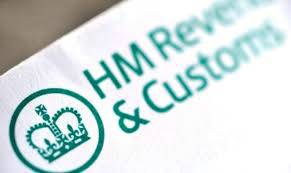

Time has passed since the IR35 tax legislation changes and subsequent reinforcement by introduction of the Criminal Finance Act. However, confusion still exists as to the impact and obligations following these events. Whilst the public sector and NHS specifically have always required a flexible and specialist resource to enhance and support its existing workforce, to continue to do so effectively, these changes must be understood. What is IR35? From 6 April 2017, IR35 changed for the public sector. This legislation impacts contractors’ tax payments and National Insurance contributions when they work for an employer through an intermediary. Ultimately, IR35 is anti-avoidance tax legislation aimed at preventing ‘disguised employment’ where a worker receives payment through an intermediary (recruitment company, “umbrella” or their own limited company) but the relationship with the client would mean that if they were engaged directly, they would be deemed employees. What has changed? The change means that now employers must decide whether IR35 applies to workers whereas previously this decision would have been made by the workers themselves. Who is affected? Not everyone is affected by this change – only those working in the Public Sector are affected (private sector processes remain the same for the moment). Whilst this automatically applies to the NHS it does not apply to the whole of the NHS, it being specially targeted at public authorities which are defined by the Freedom of Information Act 2000. In the NHS, this affects:
This means that APMS providers are not affected, as well as private commercial providers who are contracted to provide NHS services such as out-of-hours or urgent care centres. What happens if my work is deemed inside IR35? It is envisaged this will be the case for the majority of workers and you will be required to pay income tax and national insurance contributions. These will be deducted by your agency/umbrella company or other payroll operator. Failure to make deductions may constitute an offence under the Criminal Finance Act and the potential for incurring substantial penalties What happens if I am wrongly deemed to be outside IR35? Nothing. As far as HMRC are concerned, the employer or agency would be liable to pay any taxes or National Insurance to HMRC as well as penalties incurred under the Criminal Finance Act. It is also important to note that HMRC have stated they will stand by any decision produced by their online tool. Whilst the tool is used anonymously, you can print out the result and file for your records. It is most important that information is input correctly since failure to do so will invalidate the result and with potentially severe consequences. Revised guidance from NHS Improvement This guidance states that IR35 should be applied on a case-by-case basis by NHS Trusts and Health Boards. Click here for more information. Your next steps Firstly, contact your accountant to establish your position and understand if the rules are likely to affect you. Secondly, if you are working with a recruitment agency, phone your consultant for advice. Access HMRCs further information and calculation tool, here.
Friday Jan 19, 2018
|